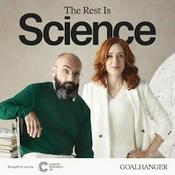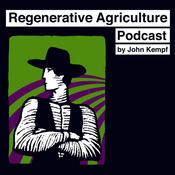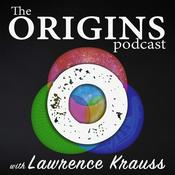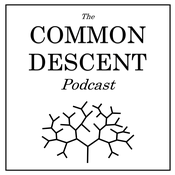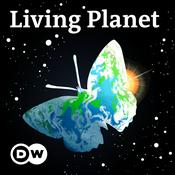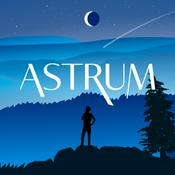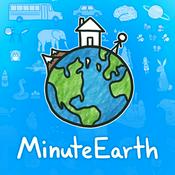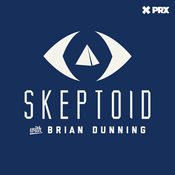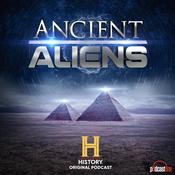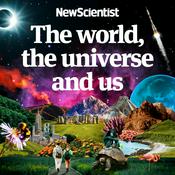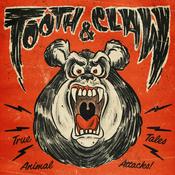16 episodes

Special Preview of Before Us Kids! Out for a stroll at White Sands
2025/6/18 | 21 mins.
Send us a textImagine taking a walk with Columbian mammoths, giant sloths, lions, sabre-tooth tigers, camels and loads of other animals? Sounds crazy, right! Yet it actually happened 20,000 years ago and in this episode Dr. Erich talk to Noah and Colton about some seriously cool discoveries at White Sands National Monument in New Mexico. Want to learn more? Check out the Before Us Kids Patreon (https://www.patreon.com/c/BeforeUsKids) where we have bonus episodes that discuss the science behind the stories and other exclusive content such as the 10-part series A Totally Ridiculous, Mostly Serious, Always Awesome Guide to Surviving the Ice Age (but also Zombies and the Weirdness of Life in General). There’s even a place where kids can ask questions. It’s super cool.

Special Preview of Before Us Kids! Red-headed Neanderthals?
2025/6/09 | 17 mins.
Send us a textIn this hair-larious episode, Dr. Erich chats with Jake and Colton all about red hair, genetics, and some super cool things we might’ve gotten from our ancient cousins—the Neanderthals! Want to learn more? Check out the Before Us Kids Patreon (https://www.patreon.com/c/BeforeUsKids) where we have bonus episodes that discuss the science behind the stories and other exclusive content such as the 10-part series A Totally Ridiculous, Mostly Serious, Always Awesome Guide to Surviving the Ice Age (but also Zombies and the Weirdness of Life in General). There’s even a place where kids can ask questions. It’s super cool.

Special Preview of Before Us Kids! Woolly Mice?
2025/6/02 | 17 mins.
Send us a textIn this episode, Dr. Erich and Colton dive into a wild idea—bringing back the woolly mammoth! How are scientists doing it? Believe it or not…some scientists think it starts with woolly mice! Yep, you heard that right. WOOLLY MICE! Join us for a super fun and funny chat about some very fluffy science. You won’t want to miss this one! Want to learn more? Check out the Before Us Kids Patreon (https://www.patreon.com/c/BeforeUsKids) where we have bonus episodes that discuss the science behind the stories and other exclusive content such as the 10-part series A Totally Ridiculous, Mostly Serious, Always Awesome Guide to Surviving the Ice Age (but also Zombies and the Weirdness of Life in General). There’s even a place where kids can ask questions. It’s super cool.

Going with the Flow
2025/4/22 | 30 mins.
Send us a textThere is unambiguous agreement that early humans had to cross open water when they traveled from Sundaland to Sahul before 40,000 years ago. How were they able to do this and would ocean winds and currents have helped or hindered their voyages? In this episode we talk to Kiki Kuijjer and Bob Marsh, both from the University of Southampton, about flow modeling that potentially reveals how humans may have been able to make their fantastical journeys. Key PeopleRobert MarshKiki KuijjerFurther ReadingKuijjer, E. Kiki, et al. "Changing Tidal Dynamics and the Role of the Marine Environment in the Maritime Migration to Sahul: Special Issue: The Impact of Upper Pleistocene Climatic and Environmental Change on Hominin Occupations and Landscape Use, Part 1." PaleoAnthropology 2022.1 (2022): 134-148.

Water you waiting for?
2025/4/15 | 22 mins.
Send us a textSea levels rise and fall in response to complex planetary drivers, including shifts in polar ice caps, land masses, and other factors. Understanding these processes is crucial for studying prehistory in deep time, including human migration from Sundaland to Sahul and the movement of people around the globe. In this episode, Justin Dix breaks down what drives sea level change, how scientists reconstruct past sea levels, and how these fluctuations have shaped human history. Key PeopleJustin DixKey PlacesBonaparte GulfKey ConceptsGravity Earth Model (aka the lumpy potato)Further ReadingAnthony Fogg, Justin Dix, Helen Farr. Late Pleistocene Palaeo Environment Reconstruction from 3D Seismic data, NW Australia.The ACROSS project - Australasian Research: Origins of Seafaring to Sahul. Authorea. January 06, 2020.
More Science podcasts
Trending Science podcasts
About Before Us
Listen to Before Us, Radiolab and many other podcasts from around the world with the radio.net app
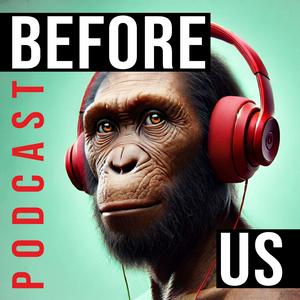
Get the free radio.net app
- Stations and podcasts to bookmark
- Stream via Wi-Fi or Bluetooth
- Supports Carplay & Android Auto
- Many other app features
Get the free radio.net app
- Stations and podcasts to bookmark
- Stream via Wi-Fi or Bluetooth
- Supports Carplay & Android Auto
- Many other app features


Before Us
download the app,
start listening.








